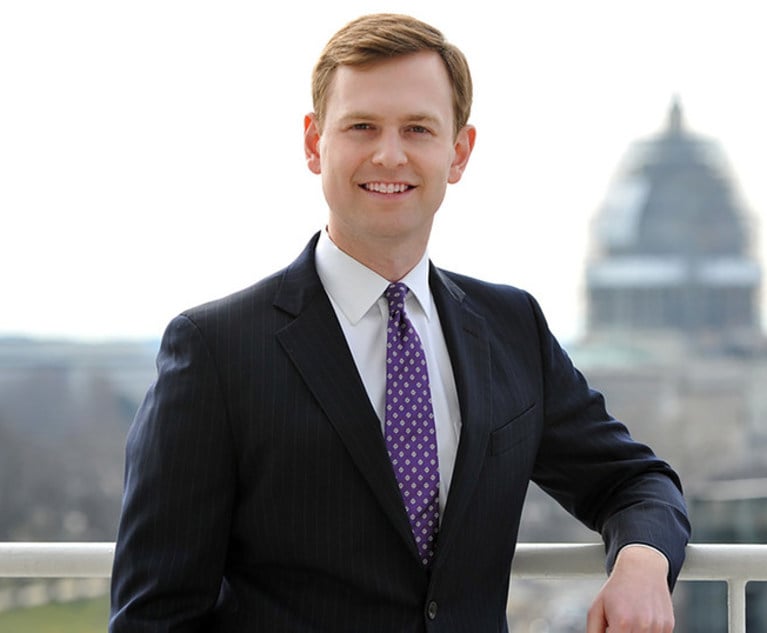Non-profits don't have flesh-and-blood owners
I was thinking about the persistence of disbelief earlier this year.
March 25, 2013 at 08:00 PM
7 minute read
I was thinking about the persistence of disbelief earlier this year. I filed comments at the Federal Communications Commission (FCC) when it asked holders of noncommercial and educational broadcast licenses to identify their owners. (C-SPAN operates an FM radio station in Washington, D.C.) It was part of an ongoing effort to encourage minority and female ownership of radio and television stations. Six years earlier, the FCC asked the same question, and it got answers that it apparently did not believe. Hence, we had to answer the question again.
Back in 2009, we told the FCC that non-profit organizations don't have any owners. When the agency asked the question again this year, it was put to us this way, essentially: “Last time you told us that non-profit organizations don't have any owners, but … really?” My answer took five pages to say, essentially, “Really.”
It is understandable that the smart people at the FCC would not believe that hundreds of thriving, influential and often wealthy organizations operating radio and television stations would not have real flesh-and-blood owners. There is a generally held and ordinarily sensible view that everything of value in our economy must be owned by somebody. But, believe it or not, non-profit organizations do not have owners. If they did, they would not qualify to be non-profit organizations under state law, nor would they qualify for federal tax exemptions.
I should cut the FCC some slack here because it is under pressure to encourage diversity among broadcasters. It's been getting detailed ownership reports from commercial broadcasters for years. On the surface, it seems logical that the FCC should apply its diversity goals to public TV and radio broadcasters as much as it does to their for-profit counterparts. But the agency bureaucrats (and I do not use that term as a pejorative) started out on the wrong foot when they assumed they could get to the heart of the diversity conundrum by applying that old Washington path to the truth, “follow the money.” The logic was, “If we know where the money is and how it got a broadcasting license from us, we can devise policies that hopefully lead to more women and minorities owning public TV and radio stations.”
Unfortunately, the FCC is following the money to a dead end in this case. The agency will discover, again, that the directors and officers of the non-profits holding broadcast licenses do not have any ownership interest in their radio or TV stations. Many of the officers are paid staff of charities. Some of the directors are state, city, county or university employees who serve on the boards by virtue of their positions. Other directors are community representatives. None of them can be said to be “owners” of the corporations that hold the licenses. At most, the directors and officers of a non-profit organization can be regarded as stewards of the organization's assets—here, a valuable broadcast license. In noncommercial radio and TV, the board members and officers control the asset, but they can't sell it, buy more of it, borrow against it or take profits from it.
I and others are trying to persuade the FCC to drop the new “ownership” questions it wants to add to our required biennial filings. The agency is trying, in effect, to use a thermometer to measure distance in a situation where the “distance” doesn't matter. There might be some information public radio and TV stations could provide the FCC to help it diversify the community, but ownership information is a dead end.
Bruce D. Collins is corporate vice president and general counsel of C-SPAN, based in Washington, D.C. Email him at [email protected].
I was thinking about the persistence of disbelief earlier this year. I filed comments at the Federal Communications Commission (FCC) when it asked holders of noncommercial and educational broadcast licenses to identify their owners. (C-SPAN operates an FM radio station in Washington, D.C.) It was part of an ongoing effort to encourage minority and female ownership of radio and television stations. Six years earlier, the FCC asked the same question, and it got answers that it apparently did not believe. Hence, we had to answer the question again.
Back in 2009, we told the FCC that non-profit organizations don't have any owners. When the agency asked the question again this year, it was put to us this way, essentially: “Last time you told us that non-profit organizations don't have any owners, but … really?” My answer took five pages to say, essentially, “Really.”
It is understandable that the smart people at the FCC would not believe that hundreds of thriving, influential and often wealthy organizations operating radio and television stations would not have real flesh-and-blood owners. There is a generally held and ordinarily sensible view that everything of value in our economy must be owned by somebody. But, believe it or not, non-profit organizations do not have owners. If they did, they would not qualify to be non-profit organizations under state law, nor would they qualify for federal tax exemptions.
I should cut the FCC some slack here because it is under pressure to encourage diversity among broadcasters. It's been getting detailed ownership reports from commercial broadcasters for years. On the surface, it seems logical that the FCC should apply its diversity goals to public TV and radio broadcasters as much as it does to their for-profit counterparts. But the agency bureaucrats (and I do not use that term as a pejorative) started out on the wrong foot when they assumed they could get to the heart of the diversity conundrum by applying that old Washington path to the truth, “follow the money.” The logic was, “If we know where the money is and how it got a broadcasting license from us, we can devise policies that hopefully lead to more women and minorities owning public TV and radio stations.”
Unfortunately, the FCC is following the money to a dead end in this case. The agency will discover, again, that the directors and officers of the non-profits holding broadcast licenses do not have any ownership interest in their radio or TV stations. Many of the officers are paid staff of charities. Some of the directors are state, city, county or university employees who serve on the boards by virtue of their positions. Other directors are community representatives. None of them can be said to be “owners” of the corporations that hold the licenses. At most, the directors and officers of a non-profit organization can be regarded as stewards of the organization's assets—here, a valuable broadcast license. In noncommercial radio and TV, the board members and officers control the asset, but they can't sell it, buy more of it, borrow against it or take profits from it.
I and others are trying to persuade the FCC to drop the new “ownership” questions it wants to add to our required biennial filings. The agency is trying, in effect, to use a thermometer to measure distance in a situation where the “distance” doesn't matter. There might be some information public radio and TV stations could provide the FCC to help it diversify the community, but ownership information is a dead end.
Bruce D. Collins is corporate vice president and general counsel of C-SPAN, based in Washington, D.C. Email him at [email protected].
This content has been archived. It is available through our partners, LexisNexis® and Bloomberg Law.
To view this content, please continue to their sites.
Not a Lexis Subscriber?
Subscribe Now
Not a Bloomberg Law Subscriber?
Subscribe Now
NOT FOR REPRINT
© 2025 ALM Global, LLC, All Rights Reserved. Request academic re-use from www.copyright.com. All other uses, submit a request to [email protected]. For more information visit Asset & Logo Licensing.
You Might Like
View All
Internal Whistleblowing Surged Globally in 2024, So Why Were US Numbers Flat?
6 minute read
FTC Finalizes Child Online Privacy Rule Updates, But Ferguson Eyes Further Changes

Supreme Court Reinstates Corporate Disclosure Law Pending Challenge
Trending Stories
Who Got The Work
J. Brugh Lower of Gibbons has entered an appearance for industrial equipment supplier Devco Corporation in a pending trademark infringement lawsuit. The suit, accusing the defendant of selling knock-off Graco products, was filed Dec. 18 in New Jersey District Court by Rivkin Radler on behalf of Graco Inc. and Graco Minnesota. The case, assigned to U.S. District Judge Zahid N. Quraishi, is 3:24-cv-11294, Graco Inc. et al v. Devco Corporation.
Who Got The Work
Rebecca Maller-Stein and Kent A. Yalowitz of Arnold & Porter Kaye Scholer have entered their appearances for Hanaco Venture Capital and its executives, Lior Prosor and David Frankel, in a pending securities lawsuit. The action, filed on Dec. 24 in New York Southern District Court by Zell, Aron & Co. on behalf of Goldeneye Advisors, accuses the defendants of negligently and fraudulently managing the plaintiff's $1 million investment. The case, assigned to U.S. District Judge Vernon S. Broderick, is 1:24-cv-09918, Goldeneye Advisors, LLC v. Hanaco Venture Capital, Ltd. et al.
Who Got The Work
Attorneys from A&O Shearman has stepped in as defense counsel for Toronto-Dominion Bank and other defendants in a pending securities class action. The suit, filed Dec. 11 in New York Southern District Court by Bleichmar Fonti & Auld, accuses the defendants of concealing the bank's 'pervasive' deficiencies in regards to its compliance with the Bank Secrecy Act and the quality of its anti-money laundering controls. The case, assigned to U.S. District Judge Arun Subramanian, is 1:24-cv-09445, Gonzalez v. The Toronto-Dominion Bank et al.
Who Got The Work
Crown Castle International, a Pennsylvania company providing shared communications infrastructure, has turned to Luke D. Wolf of Gordon Rees Scully Mansukhani to fend off a pending breach-of-contract lawsuit. The court action, filed Nov. 25 in Michigan Eastern District Court by Hooper Hathaway PC on behalf of The Town Residences LLC, accuses Crown Castle of failing to transfer approximately $30,000 in utility payments from T-Mobile in breach of a roof-top lease and assignment agreement. The case, assigned to U.S. District Judge Susan K. Declercq, is 2:24-cv-13131, The Town Residences LLC v. T-Mobile US, Inc. et al.
Who Got The Work
Wilfred P. Coronato and Daniel M. Schwartz of McCarter & English have stepped in as defense counsel to Electrolux Home Products Inc. in a pending product liability lawsuit. The court action, filed Nov. 26 in New York Eastern District Court by Poulos Lopiccolo PC and Nagel Rice LLP on behalf of David Stern, alleges that the defendant's refrigerators’ drawers and shelving repeatedly break and fall apart within months after purchase. The case, assigned to U.S. District Judge Joan M. Azrack, is 2:24-cv-08204, Stern v. Electrolux Home Products, Inc.
Featured Firms
Law Offices of Gary Martin Hays & Associates, P.C.
(470) 294-1674
Law Offices of Mark E. Salomone
(857) 444-6468
Smith & Hassler
(713) 739-1250







